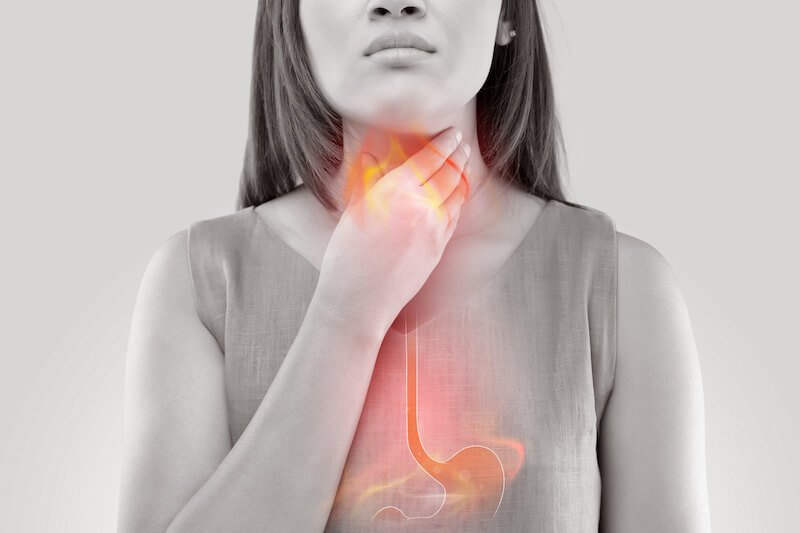What Causes Heartburn?
An estimated one-third of Americans (60 million) experience heartburn at least once a month, with 10% experiencing it nearly every day. But, what exactly is heartburn and what are its causes?
Despite its name, heartburn doesn’t have anything to do with your heart. Instead, it refers to a burning sensation in your chest or throat that is typically worse after eating, at night, when lying down or when bending over. Those who experience heartburn may also notice a bitter or acidic taste in their mouth.
Heartburn is caused when the lower esophageal sphincter doesn’t do its job properly. This is the small muscle that acts as a valve to separate the esophagus from the stomach in order to prevent the contents of your stomach from moving back up through the digestive system.
Most people find that certain foods, as well as some lifestyle choices, can trigger or worsen their symptoms of heartburn.
Foods to Avoid
If you don’t want to feel heartburn later, here are some foods that you should avoid:
- Fried food is the biggest contributor to heartburn is fried food, as they aggravate your digestive system and lead to heartburn and acid reflux.
- Fast food is loaded with fat and sugar, not to mention the empty calories. There are plenty of reasons to avoid it including the fact fast food commonly causes upset stomach and heartburn.
- Tomatoes and tomato-based sauces such as ketchup, marinara sauce and tomato-based soups can do a number on your stomach. These foods are naturally acidic and too much acid in your stomach may cause some to splash back into your esophagus.
- Chocolate is probably the most surprising food on this list, but it contains three things that can cause heartburn–cocoa, caffeine and fat.
- Citric fruit such as oranges and grapefruit contain citric acid which can relax your esophageal sphincter and contribute to heartburn.
- Peppermint is commonly known to relax your stomach because it allows food to move more quickly to your intestines. But if you’re suffering from heartburn, peppermint will make it worse.
If you’re trying to reduce the frequency and/or severity of your heartburn symptoms, you should also avoid caffeinated or carbonated beverages, as well as alcohol.
Other Tips
Besides avoid certain types of food, other ways to avoid heartburn include not eating within 2-4 hours of going to bed because it’s more difficult for your body to digest food when you’re lying down.
Also, instead of the three standard large meals–breakfast, lunch and dinner–try eating smaller meals during the day. It’s naturally easier to digest smaller meals, so smaller more frequent meals can be easier on your digestive system.
Lastly, regular exercise can help reduce the symptoms of heartburn. Instead of laying down on the couch to watch TV after you eat, try going for a walk. Those who are overweight or obese are more likely to experience heartburn, so a post-meal walk can not only help aid your body in digestion but it can also help you manage your weight.
When to Seek Help
Chronic heartburn that occurs more than twice a week may indicate a chronic condition called gastroesophageal reflux disease (GERD)–a more serious, long-lasting form of acid reflux. Make an appointment with your doctor if:
- Heartburn occurs more than twice a week
- Symptoms persist despite use of over-the-counter medications
- You have difficulty swallowing
- You have persistent nausea or vomiting
- You have weight loss because of poor appetite or difficulty eating
If you experience severe chest pain combined with other symptoms such as pain in the arm or jaw or difficulty breathing, seek immediate help as these may be symptoms of a heart attack.
The board-certified physicians at Birmingham Gastroenterology Associates specialize in the diagnosis and treatment of a variety of digestive conditions, including chronic acid indigestion. To schedule an appointment at one of our seven office locations, call (205) 271-8000.


